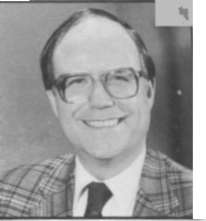 |
Home | Search | Browse | About IPO | Staff | Links |
 |
Home | Search | Browse | About IPO | Staff | Links |
|
Politics The judiciary: First among equals? 
By CHARLES N. WHEELER III THE LAW and Latin have a remarkable affinity. Attorneys and judges sprinkle bits and snatches of Caesar's tongue throughout their work; legal briefs and court decisions are dotted with important-sounding phrases like "nolle prosequi" and "res ipsa loquitur" and "stare decisis." So it seems only appropriate that another Latin expression be used to describe what appears to be the Illinois Supreme Court's vision of its place in the constitutional scheme of things. "Primus inter pares," literally, "first among equals," is a centuries-old concept historically used to characterize the relationship between the king and his lords. All were equally noble, but the king was No. 1. That aptly portrays the attitude the high court has displayed for almost a decade toward efforts by a constitutional officer of another branch of state government to discharge his legal duties. At issue is whether Auditor General Robert G. Cronson, a General Assembly appointee, may audit two administrative arms of the court, the Attorney Registration and Disciplinary Commission, which polices the legal profession, and the State Board of Law Examiners, which gives the bar exams that all would-be attorneys must pass before they can hang out their shingles. On a number of occasions over the last nine years, the justices have made it clear that they do not believe Cronson's legal duty to audit all use of public funds by state agencies applies to the two entities. Since 1978 Cronson has refused to audit other judicial accounts (about which there is no dispute) because, he contends, sound auditing principles and good public policy do not permit such partial audits. In the latest development an appointed functionary of the high court earlier this year asked the justices to order Cronson to make the partial audit. The request seems to put the court in the questionable position of sitting in judgment on its own case about which it already has made up its collective mind. The court's rationale for denying Cronson access to the financial records of the commission and of the board rests on assertions that they are not state agencies and do not handle public funds. Most importantly, the court maintains that the constitutional principle of separation of powers would be violated should the auditor general peek beneath the judicial robe of secrecy. While common sense might tell a layman that those arguments are malarkey, that faculty is not always the most appropriate criterion for testing legal reasoning. So let's examine them one by one. • The commission and the board are not state agencies because they were not created by statute. Under the Constitution, the Supreme Court is in charge of the state legal system; past court decisions make it clear that this authority includes the power to determine qualifications for admission to the bar and to discipline wayward attorneys. The board and the commission were created by Supreme Court rule to serve as the court's arm in regulating the legal profession. As administrative agencies of the judicial branch of state government, the inescapable conclusion is that the two entities are state agencies. Indeed, a federal court ruled that the commission is a state agency in a 1984 case involving Social Security coverage for commission employees. Two previous Illinois attorneys general reached the same conclusion in advisory opinions rendered in 1974 and in 1982. • The moneys held by the board and by the commission are not public funds because they are not appropriated. True, the General Assembly does not appropriate budgets for the two agencies. But the funds they receive and expend hardly can be considered private, voluntary contributions from lawyers concerned about maintaining proper standards for the profession. Instead, they are licensing fees imposed by the Supreme Court; anyone who doesn't pay the required ante can't practice law in Illinois. The situation for lawyers is no different from the licensing schemes imposed upon scores of other professions. A real estate agent, for example, needs a state license, a portion of the fee for which goes into a special fund used to reimburse victims of real estate scams. The state Department of Registration and Education spent about $150,000 from the Real Estate Recovery Fund last year, none of it appropriated but all of it subject to Cronson's scrutiny. In fact, Cronson estimates that during the 1983 audit cycle his office audited some $4 billion in nonappropriated revenues and expenditures and about $11 million worth of assets administered by agencies like the Illinois Toll Highway Authority and the Illinois Housing Development Authority, which receive no appropriated funds at all. • The separation of powers doctrine would be violated if the auditor general audited the commission and the board. It's true that the auditor general is an officer of the legislature, which appoints him. But the Constitution calls for him to audit the use of all public funds of the state. There is no footnote excepting the judicial branch, and in fact, most of Cronson's work involves executive branch departments. Nor is an audit tantamount to interference with the court's exclusive authority to regulate the legal profession, anymore than audits of the fees paid by doctors and dentists involve the auditor general in setting public health policy. A few months ago another bastion of judicial distinction fell when the Supreme Court ordered public disclosure of judges' economic interests. Unfortunately, the new rule came in the wake of the Operation Greylord investigation into judicial corruption in Cook County. Perhaps it would behoove the high court to open the books of the commission and of the board to the auditor general now, while there is no hint of scandal in their operations, rather than to be shamed into doing it later. 21 July 1986/Illinois Issues |
|
|